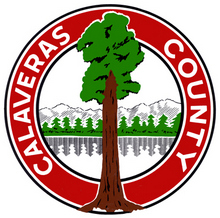San Andreas, CA – A measles case is under investigation by Calaveras Public Health in a child under the age of 5. The child was not vaccinated against measles and has since recovered. There was no known travel outside of Calaveras and Tuolumne counties.

Public Health officials identified several locations where the public may have been exposed:
September 10: Angels Camp Farmers Market and playground at Utica Park
September 12: Murphys Farmers Market and playground at Murphys Community Park
September 13: Playground at Murphys Community Park
September 15: Rapid Care: Adventist Health, Angels Camp and Adventist Health Sonora Emergency Department
September 17: Arnold Medical Clinic: Dignity Health
September 20: Angels Camp Medical Clinic: Dignity Health
Calaveras Public Health encourages people to check their vaccination status to see if they have been vaccinated against measles. Two doses of the measles vaccine is about 97% effective at preventing measles if exposed to the virus. If you have symptoms of measles call your local health care provider to let them know. If you can, avoid walking into a clinic without advanced warning.
“Measles is a very contagious and serious disease. It is so contagious that 9 out of 10 people close to that person who are not immune will also become infected,” said Dr. René Ramirez, Calaveras County Health Officer. “Measles is a preventable disease. People should check their vaccination status to make sure they are fully protected against measles and, if not, to get vaccinated,” added Dr. Ramirez.
Measles is spread through the air when a sick person coughs or sneezes. A child can get measles just by being in a room where a person with measles has been, even up to two hours after the person has left. Seven to 14 days after a measles infection, the first symptoms show. It begins with high fever (may spike to more than 104˚F), cough, runny nose, and red, watery eyes. These symptoms are followed by a rash 3-5 days after symptoms begin.
The rash typically appears on the face along the hairline or behind the ears and spreads to the rest of the body. An infected person can spread measles even before knowing they have the disease – from four days before the rash starts through four days after the rash appears.
Complications of measles can include diarrhea, ear infections, pneumonia, and seizures. Severe complications can be fatal. Groups that at highest risk to suffer from measles complications include:
Unvaccinated young children.
Unvaccinated pregnant women
People with a weakened immune system (who have not been vaccinated or was vaccinated but did not develop immunity)
The best protection against measles is the measles-mumps-rubella (MMR) vaccine. The MMR vaccine provides long-lasting protection against all strains of measles. Two doses of the MMR vaccine are recommended for immunity to measles:
The first dose at 12 to 15 months of age.
The second dose of MMR vaccine is usually given at four to six years of age. Anyone traveling outside of the United States should ensure they have received the full measles vaccination. The MMR vaccine can be obtained through your regular medical provider or local clinic.
For more information on measles, visit https://www.cdc.gov/measles/. To obtain a measles vaccination, call your health care provider.
-END


